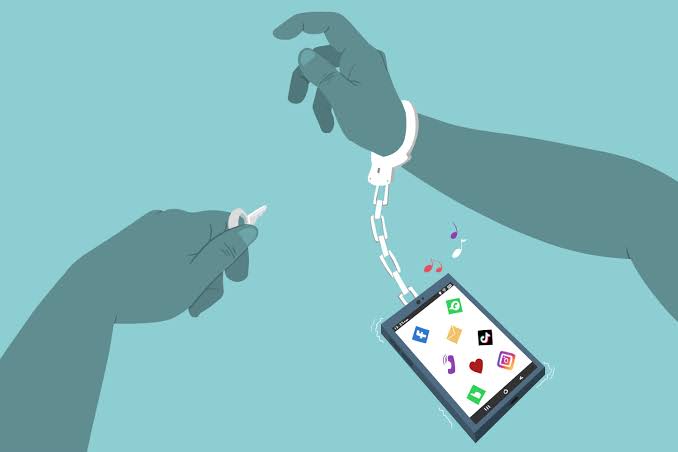Explore how smartphones influence mental health and self-care, examining both the benefits and challenges of digital tools. Learn strategies for managing smartphone use to enhance well-being and maintain a healthy balance in the digital age.
Smartphones have become integral to modern life revolutionizing communication, information access and daily routines Their influence extends to mental health and self-care offering both opportunities and challenges Understanding these impacts is crucial for managing mental well-being in increasingly digital world
The Positive Impacts of Smartphones on Mental Health
Smartphones offer numerous tools and applications designed to enhance mental health and self-care These digital tools can facilitate access to mental health resources and provide supportive communities They also aid in tracking emotional and physical well-being
1. Access to Mental Health Resources Mobile apps and online platforms provide easy access to mental health resources such as therapy apps, mindfulness exercises and self-help tools Apps like Headspace and Calm offer guided meditations and relaxation techniques while platforms like BetterHelp and Talkspace connect users with licensed therapists remotely This accessibility can help individuals manage stress anxiety and depression more effectively particularly for those who might not otherwise seek help
2. Supportive Communities and Social Networks: Social media platforms and online communities offer support and sense of belonging. Forums and groups dedicated to mental health issues allow individuals to share experiences. They can offer advice and receive encouragement from others facing similar challenges. This virtual support network is especially valuable for those who feel isolated or stigmatized
3. Tracking and Monitoring Tools: Smartphones enable users to track their mental health and self-care activities through various apps. Mood trackers journaling apps and wellness programs allow individuals to monitor emotional states. They can identify patterns and set goals. This self-monitoring facilitates greater self-awareness and helps users make informed decisions about mental health practices
Challenges of Smartphone Use on Mental Health
Despite benefits, smartphones also present several challenges that can negatively impact mental health. Issues such as screen addiction social comparison and privacy concerns can undermine positive aspects of smartphone use
1. Screen Addiction and Overuse: Pervasive use of smartphones can lead to screen addiction where individuals spend excessive time on their devices. This overuse contributes to various mental health issues including anxiety depression, sleep disturbances. Constant exposure to screens disrupts daily routines. It reduces physical activity and leads to sedentary lifestyle which further exacerbates mental health problems.
2. Social Comparison and Self-Esteem: Social media platforms often showcase curated idealized versions of people's lives leading to social comparison. This can negatively affect self-esteem and body image. Individuals may feel inadequate when comparing themselves to others. Pressure to present perfect image online can also contribute to stress and anxiety impacting overall mental well-being.
3. Privacy and Security Concerns: Collection and use of personal data by apps and social media platforms raise significant privacy and security concerns. Data breaches and cyberbullying can expose users to harmful content. This exposure can affect mental health and safety. Fear of online harassment or identity theft can lead to increased stress and anxiety. Such factors impact overall well-being.
Strategies for Managing Smartphone Use and Mental Health
To mitigate negative impacts of smartphones individuals can adopt strategies to manage smartphone use effectively.
1. Setting Boundaries: Establishing boundaries for smartphone use can help reduce overuse and screen addiction. Setting specific times for checking social media is essential. Limiting screen time before bed and creating device-free zones can help create healthier balance between online and offline activities
2. Mindful Use of Technology: Practicing mindful use of technology involves being intentional and aware of how and when smartphones are used. This includes evaluating impact of apps and social media on mental health. Choosing digital tools that contribute positively to well-being is important. Mindful use also involves being aware of notifications and alerts. Managing them in a way that minimizes stress and distraction is crucial.
3. Enhancing Privacy and Security: Taking steps to protect personal information online is crucial for mental health and safety. This includes using strong passwords and enabling two-factor authentication. Being cautious about sharing personal data is necessary. Staying informed about privacy settings and data protection practices can help safeguard against potential threats. This reduces anxiety related to online security.
4. Seeking Professional Support: For individuals experiencing significant mental health challenges related to smartphone use seeking professional support is essential. Mental health professionals provide guidance and strategies for managing smartphone-related issues. They also help address underlying mental health concerns.
Conclusion
Smartphones have profound impact on mental health and self-care offering both opportunities and challenges. They provide valuable resources and support for mental well-being. However, they also present risks. These include screen addiction social comparison and privacy concerns. By adopting strategies to manage smartphone use effectively, individuals can prioritize mental health. Thus they can navigate digital landscape in a way that supports overall well-being. Understanding and addressing these impacts is essential for maintaining balanced and healthy relationship with technology
